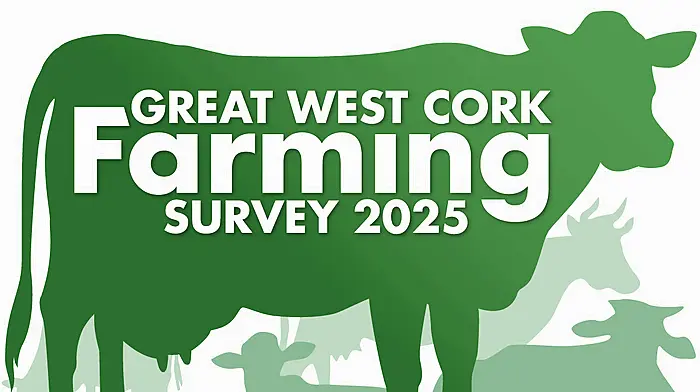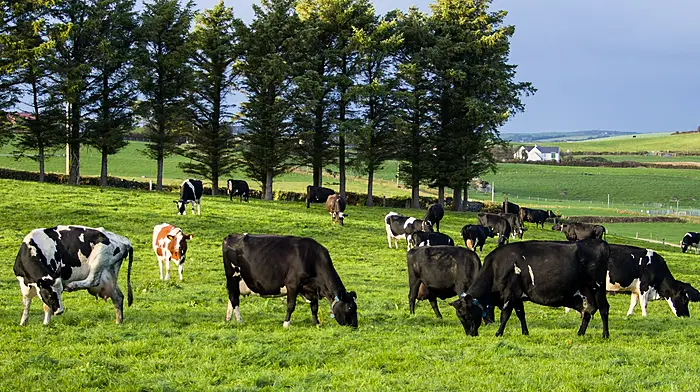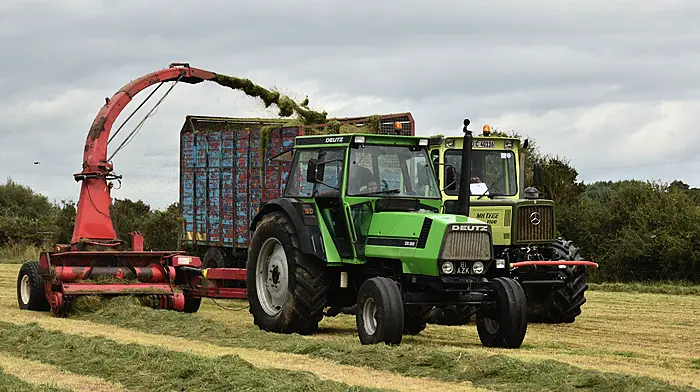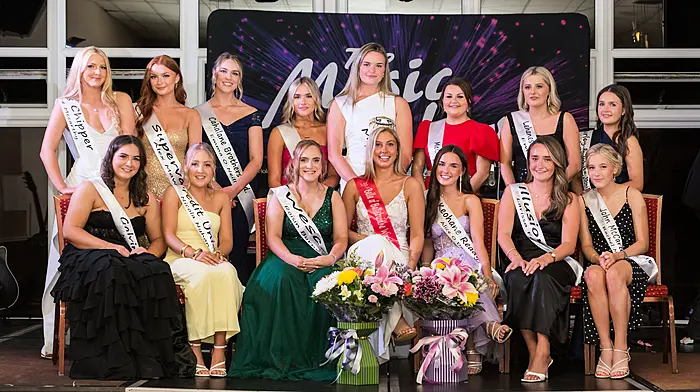BY TOMMY MOYLES
FARMERS have been reminded that non-compliance around the nitrates derogation measures by a small cohort of farmers has led to increased regulations.
Responding to a question on the need for extra storage and reduced windows for spreading soiled water, IFA dairy executive Aine O’Connell said that there is a ‘very strict definition of soiled water in the nitrates directive.’
‘It goes down to the milligrams of nitrogen per litre that can be in soiled water. Unfortunately, we had people spreading soiled water which was very brown and that is why they’re going after soiled water,’ she said.
Similar bad practices were also called out, both from the top table and by attendees at a recent event, hosted by the three Cork IFA county executives in Ballincollig. The meeting followed an on-farm information event for politicians earlier in the day which demonstrated the financial implications of a reduction in the organic nitrogen limit.
Cork central IFA chairman Conor O’Leary said: ‘We used case studies of an individual farm, a discussion group and the wider dairy farming catchment to show the knock-on effects of reducing the organic nitrogen limit to 220kgs N/ha. They were also informed that the county with the most dairy cows and derogation farms is Cork and the county with the best river quality is Cork. There’s no match-up between numbers of cows, derogation farms and water quality.’
Addressing farmers, IFA president Tim Cullinane said changes to the political landscape had resulted in the organisation adapting their lobbying accordingly. Playing Fianna Fail and Fine Gael against each other worked effectively for decades, but with both parties now in government together, that strategy has been forced to change, he said. The challenge with that is that communication channels developed over the decades aren’t necessarily there with every opposition party, he said.
Ireland’s nitrates derogation needs to be phased out fairly, Social Democrat Leader Holly Cairns has said.
‘When I ran for election, I promised to base my decisions on what I thought was right. I believe that politicians need to have a candid and honest conversation about the nitrates derogation without worrying about losing votes. My focus is on ensuring the viability of family farms and promoting sustainable agriculture. In many ways the derogation is an obstacle to these goals,’ she said.
‘In my view, the nitrates derogation needs to be phased out in a fair and orderly way. Ireland is one of only three countries with this arrangement in place. There is increased scrutiny of our water quality and, notwithstanding the positive results from the catchments programme, it is likely that the European Commission will not extend the derogation beyond 2025.’
She said the government should be putting plans in place now to help family farms that may be adversely impacted. In particular, she said she is concerned with small farms, because the farmer with only 40 or 50 cattle should not be treated the same as those with larger herds.
‘The Department needs to put in place targeted supports to help family farms whose viability may be affected by changes to the derogation. Unless the Minister takes the responsible decision to ensure a fair transition now, he is taking the risk of leading many farmers to a cliff edge come 2025. Farmers are rightly deeply dissatisfied with constantly changing regulations. The derogation model is inherently volatile and leads to uncertainty in farming communities,’ the deputy added. ‘In essence, it is a policy based on exceptions, but successive governments have treated it as a permanent measure.’
Deputy Cairns also said that the government needs to support more sustainable farming models rather than forcing farmers into more intensive methods just to make ends meet. ‘This results in farming communities being blamed for poor government policy and its impact on the environment. Farmers deserve better policies, more engagement and more respect.
‘I recently had a very honest and constructive engagement with local IFA representatives, who conveyed their concerns for family farms. I want to ensure them that I will be pushing the Minister to have a long overdue national conversation on the derogation.’










